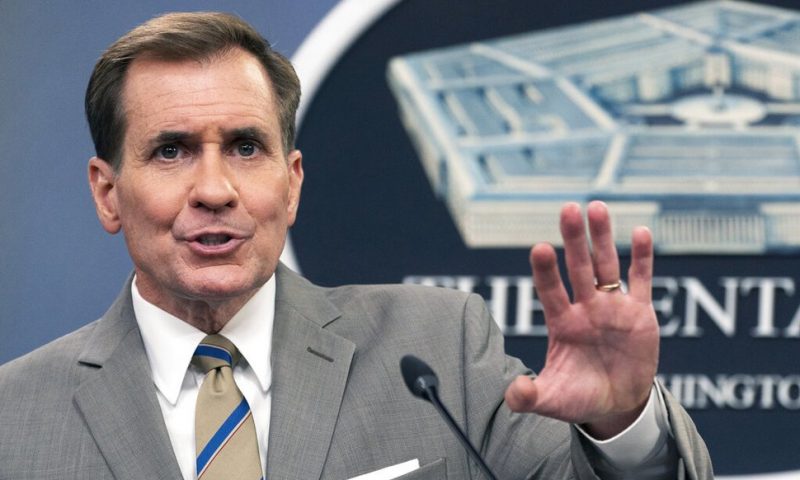Afghan commanders were incredulous that the U.S. apparently left its largest and most significant base in Afghanistan without telling them. The Pentagon cites security concerns.
The Defense Department on Tuesday confirmed it withheld from its Afghan allies the specific time it would complete a withdrawal from its largest base in Afghanistan due to security concerns, hours after local commanders expressed surprise and disbelief at the sudden U.S. departure from Bagram.
Speaking to reporters a day after the U.S. quietly shuttered its presence at the sprawling complex an hour north of Kabul, Pentagon spokesman John Kirby refuted assertions from Afghan commanders that the U.S. withdrew from Bagram suddenly and without notice in the middle of the night, turning off the water and power and allowing looters to gain access to some of the military equipment left behind.
“Everybody knew that was happening and there was a general understanding about roughly when,” Kirby said.
U.S. officials briefed their Afghan civilian and military counterparts about the U.S. intentions to withdraw 48 hours prior, Kirby said, and conducted a walk-through of the former Soviet base to explain some of its facilities. However, the U.S. did not specify when it would leave due to ongoing concerns that the Taliban may attempt to exploit the U.S. withdrawal.
Kirby would not explain the connection between informing officials in Kabul about the departure time and the threat the Taliban could pose, saying only it was for “operational security purposes.”
“That’s not different than other turnovers we’ve done in the past in Afghanistan,” Kirby said. “It was a decision made in the best interests to the safety and security of our people.”
Australia’s The Age was among the news outlets that documented the incredulous reaction from officials in Afghanistan, including the new commander of the base, who said he only learned of the Americans’ departure two hours after they left.
“We [heard] some rumour that the Americans had left Bagram … and finally by 7 o’clock in the morning, we understood that it was confirmed that they had already left Bagram,” General Mir Asadullah Kohistani told the newspaper.
Looters flocked to the base and began rifling through supplies left behind before local forces learned of what was happening and regained control of it. The U.S. military left behind some vehicles, including armored trucks and personnel carriers, along with the other scraps that come from 20 years of use as a bustling air hub – including cinnamon Pop-Tarts – though it says all weapons and ammunition were either destroyed, shipped out or given to Afghan troops.
The withdrawal comes amid a surge in Taliban takeovers of districts throughout Afghanistan and reports of persistent terrorist threats within the country from al-Qaida and the Islamic State group despite 20 years of counterterrorism warfare there led by the U.S.
The Foundation for the Defense of Democracies’ Long War Journal, which tracks such trends, released a report late Monday showing the Taliban had seized an additional 10 percent of the country in the previous six days, bringing the total districts it now controls up to 188 with another 135 considered contested.
“Much of the Taliban gains have occurred in the north. The importance of the Taliban’s northern thrust cannot be understated. The Taliban is taking the fight directly to the home of Afghanistan’s elite power brokers and government officials,” writes Bill Roggio, author of the report.
The devastating news comes amid other reports that the insurgent network has made similar gains along key routes that connect Kabul to districts in the south, the Taliban’s traditional stronghold.
And it comes as the Biden administration has few answers for its stated goal of maintaining an effective counterterrorism mission in or around Afghanistan despite not having a military presence outside of its diplomatic compound.
Secretary of Defense Lloyd Austin will speak with his Turkish counterpart larter this week about sharing some of the security responsibilities – particularly for the airport in Kabul – though fraying relations between Washington and Ankara in recent years have roused skepticism among most analysts. Austin and Secretary of State Antony Blinken have also met with other regional leaders, including officials in Tajikistan and Uzbekistan about establishing a U.S. base in one of those countries along Afghanistan’s northern border.
It remains unclear if and how the U.S. could establish an airbase in any of Afghanistan’s neighboring countries, relegating its ability to strike terrorists to aircraft carriers or other established bases in the Gulf that are hours away by flight.

